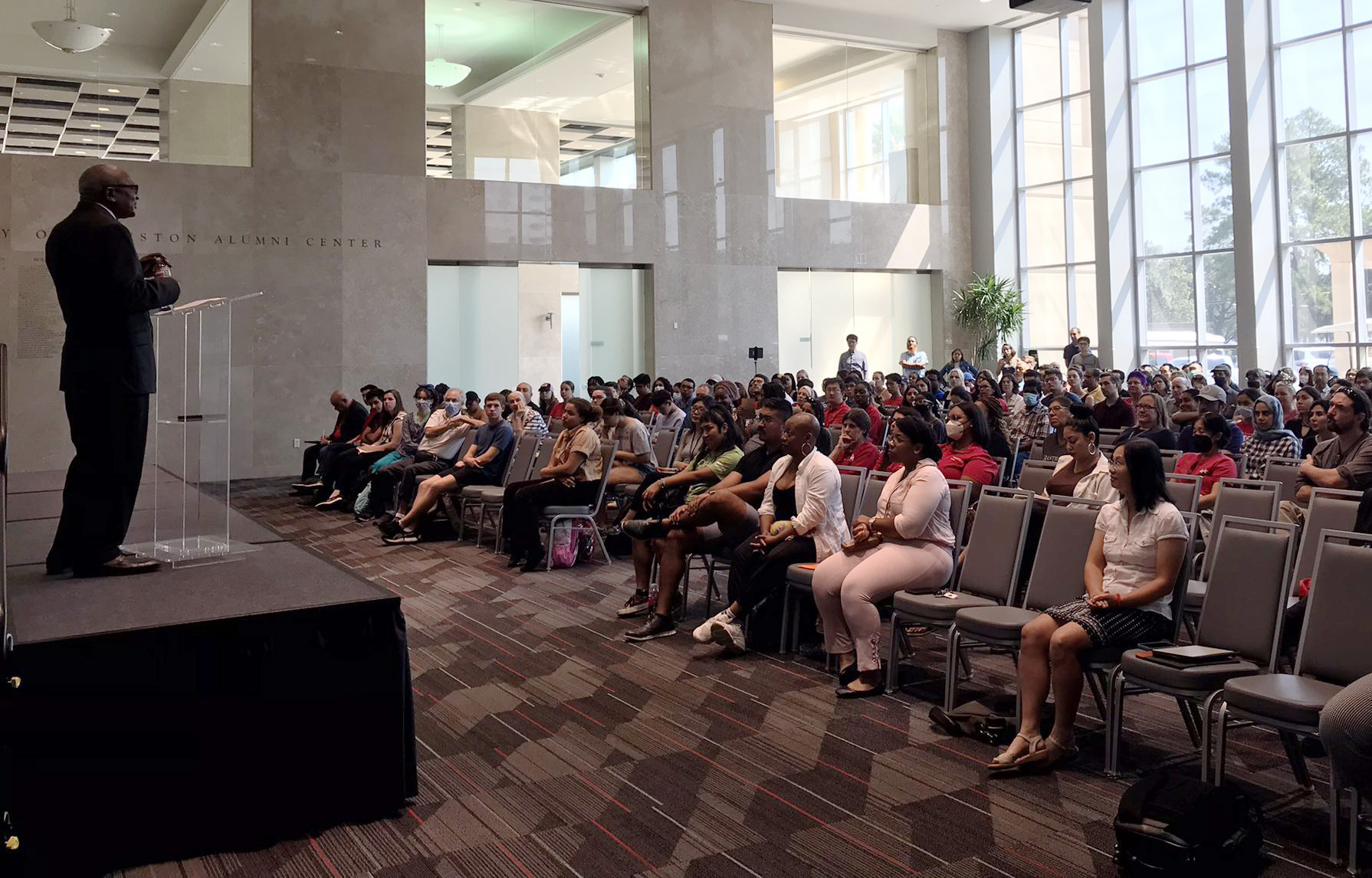The Quest for Environmental and Climate Justice By Angela Jardina

‘Father of Environmental Justice’ Robert D. Bullard Challenges Students to push for Environmental Justice
Drawing attendees from every corner of the University of Houston campus, Robert Bullard challenged students to help lead the fight for environmental and climate justice during an insightful address held last month at the UH Alumni Center.
An urban planning and environmental policy professor at Texas Southern University, Bullard earned the moniker of “Father of Environmental Justice” thanks to his trailblazing research and subsequent influence on an incomprehensibly vast majority of organizations, movements, and projects. These endeavors have sparked needed dialogue and ideas regarding race, sustainability and environmental health.
To the surprise of the audience, the award-winning author spoke on the intersectionality of social justice and environmental issues that have served as the foundation of his works. Earth and Atmospheric Sciences associate professor Jonny Wu said he was encouraged by the diverse audience of students, faculty, and public that attended the lecture.
“(Bullard) brought a number of poignant examples of climate and environmental justice issues from our local area,” Wu said, citing Bullard’s use of local examples such as highway building, energy plants construction, and landfills that have had unjust effects on the typically minority communities that they disrupt.
“I’m personally inspired by Dr. Bullard to be an academic that pursues excellence in both science and advocacy,” Wu added.
As a student in attendance, I was shocked to learn about the repeated dumping of toxic waste in minority communities.
As a young graduate student beginning his research into how environmental developments have impacted communities dating all the way back to the 1930s, Bullard explained how he learned about the occurrence of what he calls “environmental racism” in northeast Houston. This refers to the event in which the decisions regarding the environmental disposal of waste, climate change disasters, and even environmental development disproportionately affect minority communities.
“America is segregated and so is pollution,” Bullard said. “As our nation transitions to a clean energy economy, it’s important that this transition is just, fair, and equitable; not leaving behind the individuals and families who have suffered in communities located on the frontline and fence-line with polluting industries. Our most vulnerable communities need environmental, climate, energy, and economic justice now.”
He went on to warn the audience to be wary of how developments are rather unjustly, affecting historically impacted communities as we continue toward the energy transition. Bullard directed perhaps his most poignant words toward UH students wondering what they can do to help the cause, as the renowned academic summoned Coogs to make our voices heard.
“One student can make a difference. One can do more if you’re part of an organization,” Bullard said. “Every social movement in the U.S. that has been successful has had strong youth and students leading and pushing for transformative change. The same holds true in the quest for environmental and climate justice. Speak up. This is your time. It’s your future that is at stake.”